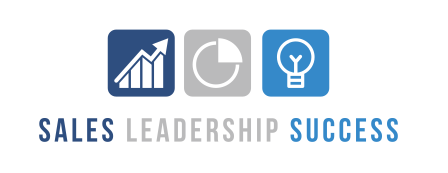Harnessing CRM Data: The Key to Empowering Your Sales Team

The Pitch
Use your CRM data to help not hurt. It's a simple yet profound shift in perspective. For many sales teams, CRM systems can feel like a necessary evil—complex, time-consuming, and often underutilized. Yet, these data goldmines, when leveraged correctly, can be transformative. A study by the Aberdeen Group found that effective sales teams are 79% more likely to hit their sales quota with the use of CRM data. It's not about the data itself but how you use it to boost performance and empower your team. Let's dive into some actionable ways you can use CRM data today to not just track performance but to genuinely help every member of your team excel.
Calculate your team's stage Waterfall Analysis
Understanding where deals are falling through is crucial for improving sales processes. A stage Waterfall Analysis breaks down the journey of sales opportunities through different stages, helping you identify where prospects drop off. This analysis can reveal patterns and bottlenecks, allowing you to address specific areas in the sales funnel that need improvement. It's a technique recommended by sales experts like Jason Jordan, who in his book "Cracking the Sales Management Code," emphasizes the importance of measuring the right sales activities to drive the desired outcomes.
Calculate each rep's individual averages
Individual averages in key performance metrics give reps a benchmark to measure their own performance against. It's not just about how many calls they make or deals they close, but also about the average deal size, cycle length, and conversion rates. These averages provide a personalized performance snapshot, which, according to the Journal of Personal Selling & Sales Management, can significantly enhance a rep's ability to self-assess and improve their sales approach.
Compare each person to the team's average
Comparing individual performance to the team average can be a powerful motivator. It helps reps understand where they stand relative to their peers and can inspire them to reach for higher performance levels. However, it's important to approach this comparison with sensitivity to avoid discouraging reps who may be below average. The Harvard Business Review suggests using these comparisons as a coaching tool rather than a ranking mechanism, focusing on how reps can learn from top performers.
Share the data with each rep in a 1:1 meeting
Data shared in the privacy of a 1:1 meeting can lead to open, constructive conversations about performance. It's a setting where reps can discuss their numbers without the pressure of their peers' eyes on them. This one-on-one discussion can foster a more personalized coaching approach, as recommended by the Sales Management Association, which notes that tailored coaching based on individual performance data is one of the most effective ways to improve sales rep performance.
Ask them what they see/think
Inviting reps to interpret their own data encourages them to engage with their performance metrics actively. It's a strategy that aligns with adult learning theories, which posit that adults learn best when they are involved in the diagnosis, planning, and evaluation of their own learning. By asking reps what they see in their data, you're not only helping them to understand their performance but also empowering them to take ownership of their improvement.
Develop a plan to strengthen areas that need them
Once areas for improvement are identified, it's crucial to develop a targeted plan to address them. This plan should be specific, measurable, achievable, relevant, and time-bound (SMART). A study by the International Journal of Evidence Based Coaching and Mentoring found that SMART goal setting in sales coaching leads to clearer expectations, better performance tracking, and more significant sales success.
Pair them up with someone that is strong where they need help
Peer-to-peer learning can be an effective development tool. By pairing reps with colleagues who excel in areas they struggle with, you facilitate a learning exchange that can lead to improved skills and performance. This method is supported by research from the American Society for Training and Development, which found that continuous learning opportunities, like peer coaching, can increase sales performance by up to 29%.
Ask them to help others learn how to do what they do well
Encouraging reps to teach others not only helps spread best practices but also reinforces the teacher's own skills. The act of teaching requires reps to reflect on their methods and articulate them clearly, which can deepen their understanding and proficiency. This approach is backed by the "protégé effect," as studied by the Teaching and Learning Research Programme, which suggests that teaching others can enhance the teacher's own learning and performance.
Practice the skill in role-play meetings so they get practice
Role-playing is a time-tested technique for practicing sales skills in a low-risk environment. It allows reps to refine their approach, receive feedback, and build confidence before engaging with actual prospects. The effectiveness of role-play in sales training is well-documented, with a study from the Journal of Marketing Education showing that role-play can significantly improve sales skills and performance.
So What?
Leveraging CRM data effectively is about transforming numbers and charts into actionable insights and personalized coaching opportunities. It's about using the data to help your reps grow, not just to hold them accountable. By following the steps outlined above, you can create a culture of continuous improvement and data-driven success within your sales team.
Next Steps
✅ Analyze sales stages with Waterfall Analysis.
✅ Benchmark individual performance averages.
✅ Use team averages for constructive comparison.
✅ Discuss data insights in private 1:1s.
✅ Encourage reps' self-analysis of data.
✅ Create SMART plans for improvement.
✅ Facilitate peer-to-peer learning.
✅ Promote teaching opportunities for reps.
✅ Implement role-play for skill practice.
Closed Won!
CRM data isn't just a tool for tracking; it's a catalyst for growth. By using the data to engage with your reps in a meaningful way, you're not just managing a team; you're leading a force of continuously improving sales professionals. Managers, how do you use CRM data to uplift your team?
Reps, what data-driven insights have made a difference for you?
Managers, what are you doing well, and what would you improve?
Dive into the conversation below and let's exchange strategies that turn data into development. Remember, the goal is to move from data points to "Closed Won!"
